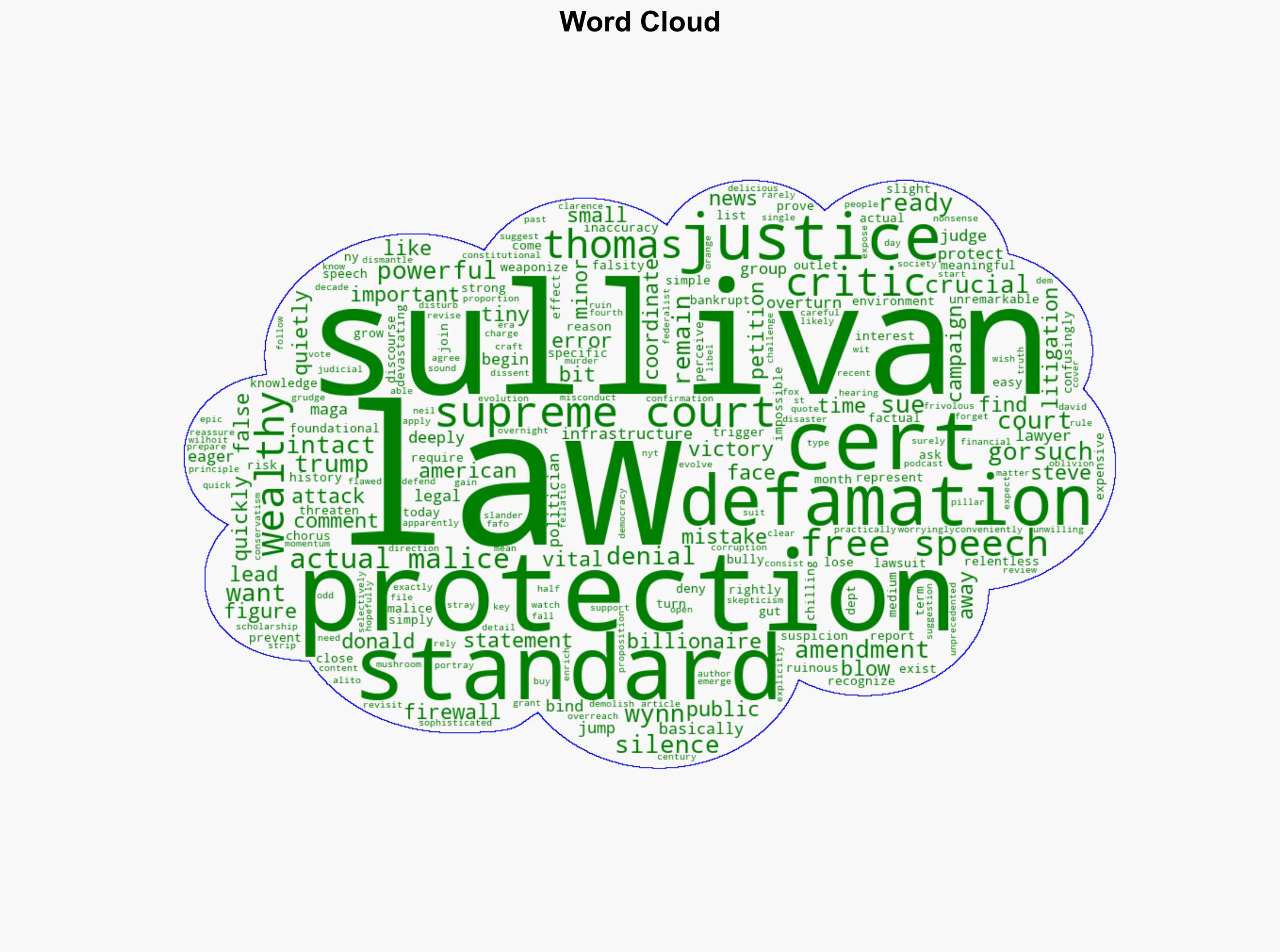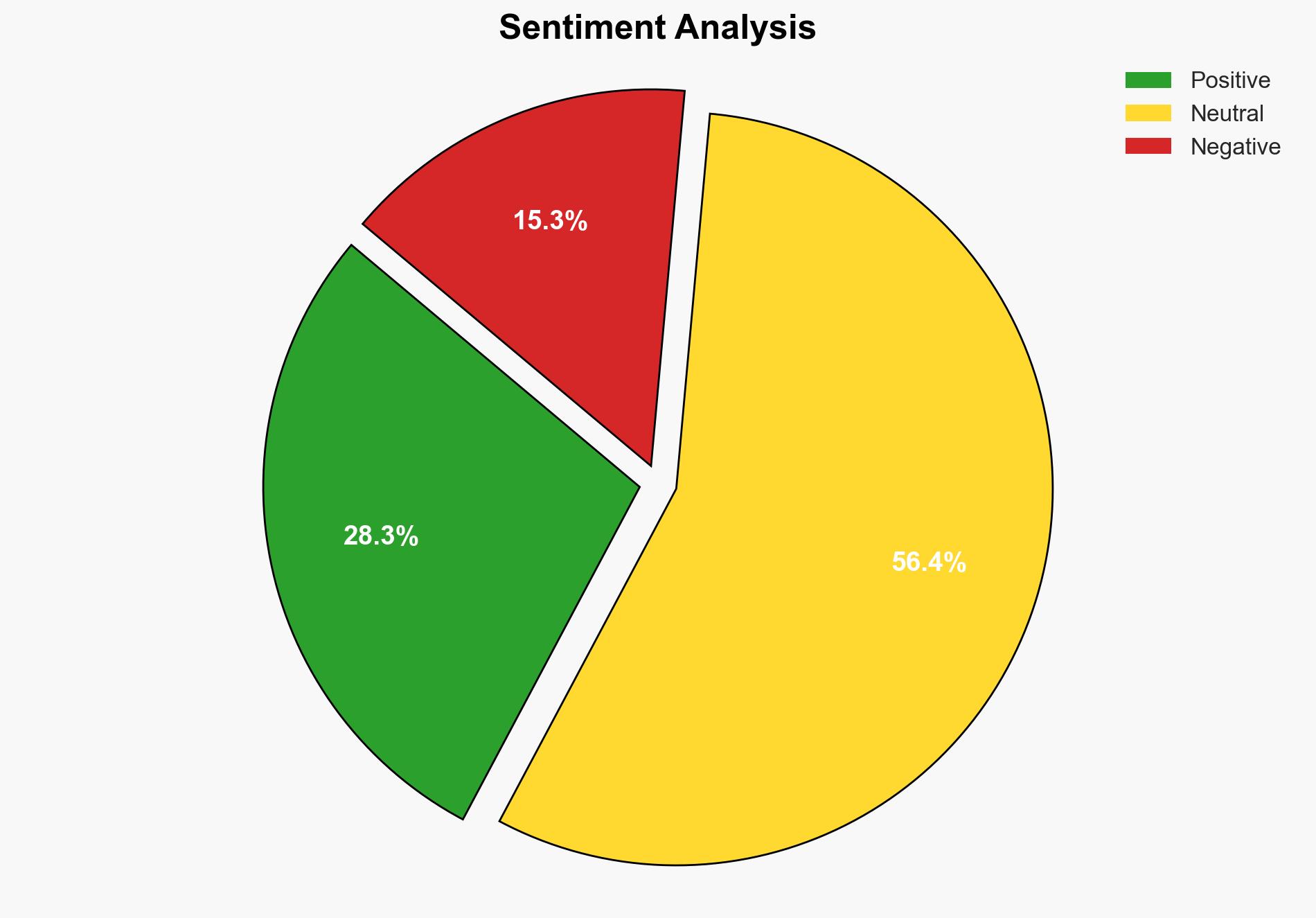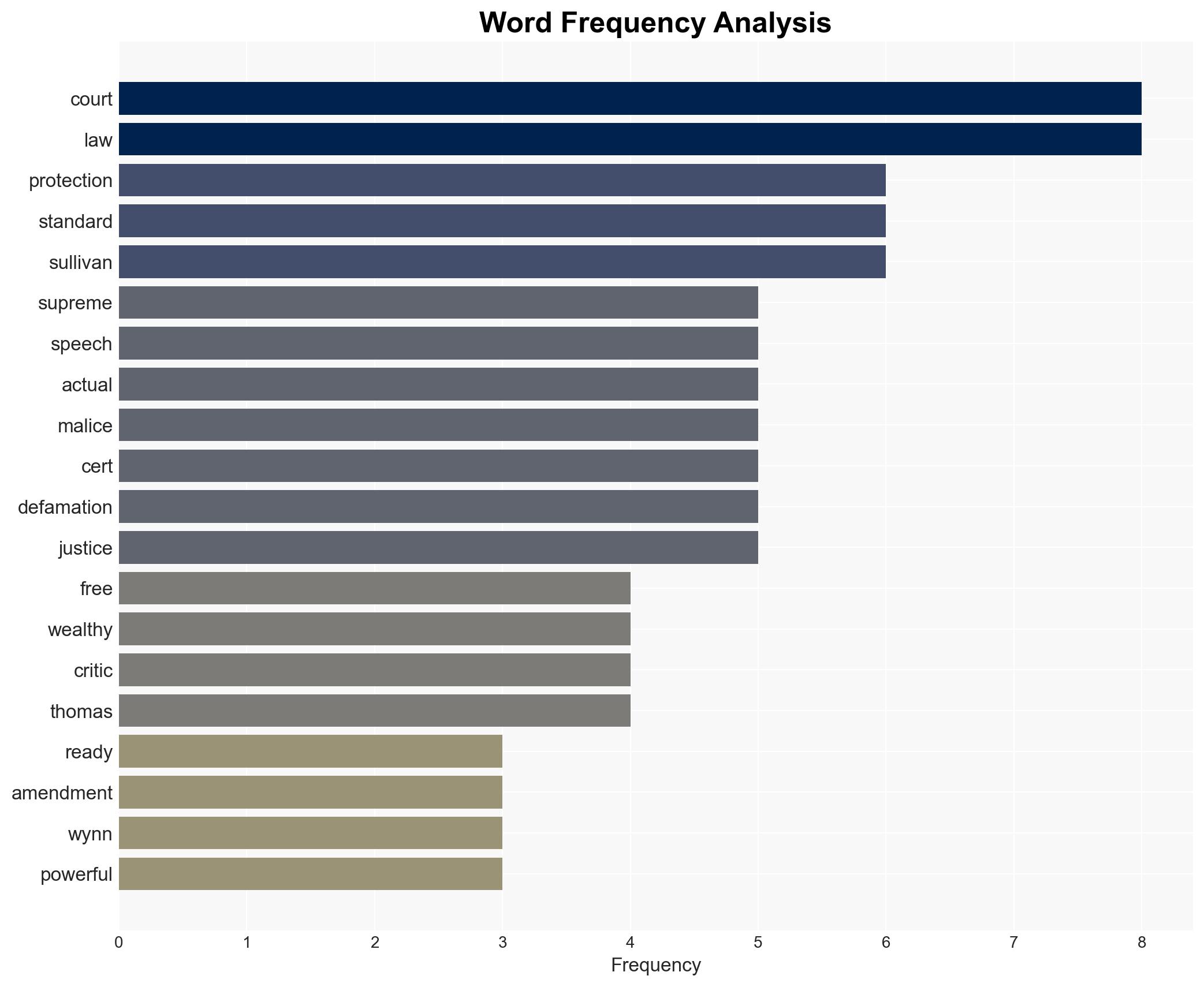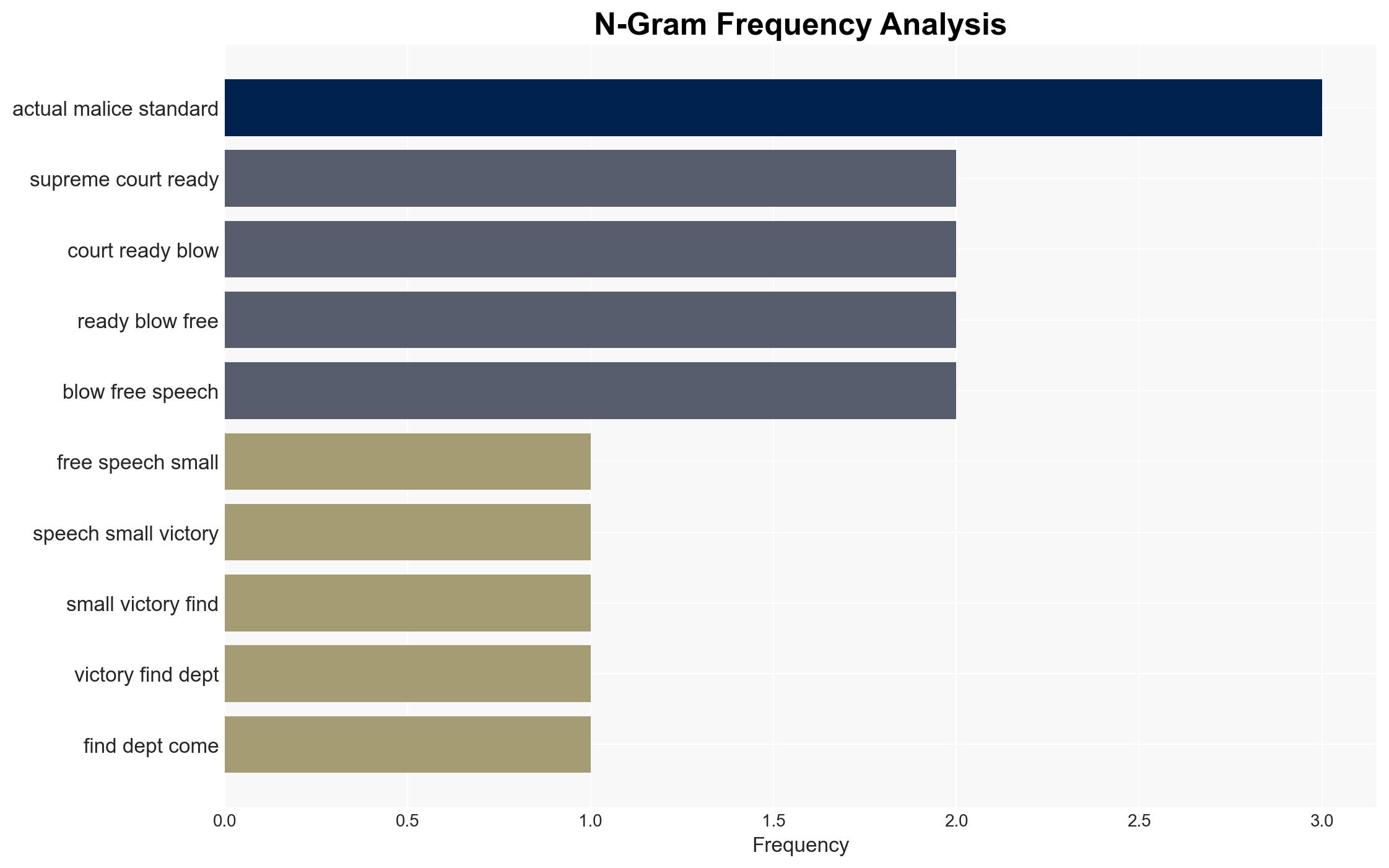Supreme Court Not Ready to Blow Up Free Speech Yet – Techdirt
Published on: 2025-04-08
Intelligence Report: Supreme Court Not Ready to Blow Up Free Speech Yet – Techdirt
1. BLUF (Bottom Line Up Front)
The Supreme Court has denied a petition that could have weakened the “actual malice” standard established by the New York Times v. Sullivan case, which is crucial for protecting free speech against defamation lawsuits by powerful individuals. This decision represents a temporary victory for free speech advocates, maintaining a critical legal standard that prevents the wealthy from using defamation suits to silence critics. However, the ongoing efforts by certain individuals and groups to challenge this standard indicate a persistent threat to free speech protections.
2. Detailed Analysis
The following structured analytic techniques have been applied for this analysis:
General Analysis
The Supreme Court’s decision to deny the petition without comment suggests a reluctance to engage in altering the foundational “actual malice” standard at this time. This standard requires plaintiffs to prove that false statements were made with knowledge of their falsity or with reckless disregard for the truth. The push to dismantle this protection is part of a broader campaign, gaining momentum over the past decade, aimed at enabling defamation lawsuits to be used as tools for silencing dissent and criticism. Key figures such as Clarence Thomas and Neil Gorsuch have expressed interest in revisiting this standard, reflecting a judicial skepticism that could influence future decisions.
3. Implications and Strategic Risks
The denial of the petition temporarily safeguards free speech, but the ongoing campaign to weaken the “actual malice” standard poses significant risks. If successful, such efforts could lead to increased litigation against media outlets and individuals, potentially stifling investigative journalism and public discourse. This could have broader implications for democratic processes, as the ability to report on corruption and misconduct without fear of crippling legal repercussions is essential for transparency and accountability.
4. Recommendations and Outlook
Recommendations:
- Strengthen legal frameworks that protect free speech and support media organizations in defending against frivolous lawsuits.
- Encourage public awareness campaigns to highlight the importance of the “actual malice” standard in safeguarding democratic freedoms.
- Monitor judicial appointments and decisions closely to anticipate shifts in legal interpretations that could impact free speech protections.
Outlook:
In the best-case scenario, continued vigilance and advocacy could maintain the integrity of the “actual malice” standard, preserving robust free speech protections. In the worst-case scenario, a successful campaign to overturn or weaken this standard could lead to a chilling effect on journalism and public criticism. The most likely outcome is a continued legal and political battle over this issue, with periodic challenges and defenses shaping the landscape of free speech rights.
5. Key Individuals and Entities
The report mentions significant individuals such as Clarence Thomas, Neil Gorsuch, and Steve Wynn, as well as entities like the Supreme Court and the Federalist Society. These individuals and groups are central to the ongoing discourse and legal strategies surrounding the “actual malice” standard and its implications for free speech.





